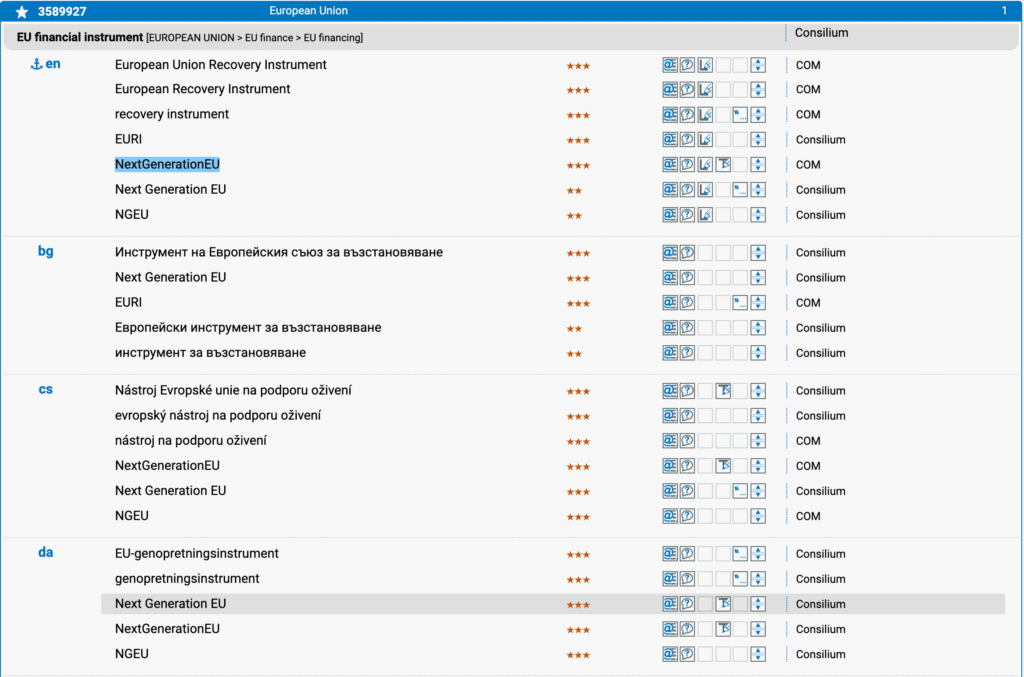The coronavirus crisis hit the world severely and unexpectedly. However, EU Member States seem to have found a solution to gradually stabilise the current situation. To smoothly enter the post-pandemic era, the European Commission, the European Parliament and EU leaders have adopted the recovery plan “NextGenerationEU”. It is a powerful €750 billion instrument designed to recover Europe from the economic and social crisis caused by the COVID-19 pandemic. To finance the recovery plan, funds will be raised on the capital markets. The funding is planned to be repaid by 2058.
What should the next generation of European citizens expect in the future? Post-pandemic Europe will be more environment-friendly, take digitalisation to a completely new level and become better equipped for future challenges and emergencies.

The key sectors benefitting from NextGenerationEU
To address the consequences of COVID-19, NextGenerationEU will strengthen already implemented policies and programmes. The funding raised for NextGenerationEU will be distributed to three main sectors:
- Support for Member States
The central element of NextGenerationEU is the Recovery and Resilience Facility – a feature allowing to provide Member States with loans and grants. In addition to it, NextGenerationEU will also allocate €47.5 billion for Recovery Assistance for Cohesion and the Territories of Europe, an initiative that, according to the European Commission, “will contribute to a green, digital and resilient recovery of the economy”.
- Support for private investment
NextGenerationEU will bring additional funding to the InvestEU programme, created to encourage private investment in projects across Europe.
- Preparation for possible emergency situations in the future
To prevent health crises in the future, a new Health Programme EU4Health was designed with a budget of €5.1 billion. EU4Health will finance EU countries, health organisations and NGOs. Moreover, RescEU, the Union’s Civil Protection Mechanism, will get a budget of €1.9 billion.
Currently, all EU Member States are expected to implement their national Recovery and Resilience Plans to put all efforts together and create a new post-pandemic Europe.
References
European Commission. 2021. Recovery plan for Europe. [ONLINE] Available at: https://ec.europa.eu/info/strategy/recovery-plan-europe_en#nextgenerationeu [Accessed 6 May 2021].
Publications Office of the EU. 2021. The EU’s 2021-2027 long-term budget & NextGenerationEU. [ONLINE] Available at: https://op.europa.eu/en/publication-detail/-/publication/d3e77637-a963-11eb-9585-01aa75ed71a1/language-en [Accessed 6 May 2021].
European Cluster Collaboration Platform. 2021. Next Generation EU – European Commission’s new recovery instrument. [ONLINE] Available at: https://clustercollaboration.eu/news/next-generation-eu-european-commissions-new-recovery-instrument [Accessed 6 May 2021].
EIPA. 2021. Recovery and Resilience Plans for the Next Generation EU [ONLINE] Available at: https://www.eipa.eu/recovery-and-resilience-plans-for-the-next-generation-eu-a-unique-opportunity-that-must-be-taken-quickly-and-carefully/ [Accessed 6 May 2021].
KEA. 2021. Update: How to benefit from the NextGenerationEU Recovery Plan if you work in culture. [ONLINE] Available at: https://keanet.eu/opinions/nextgenerationeu-recovery-plan-if-you-work-in-culture/ [Accessed 6 May 2021].
European Commission. 2021. EU budget for recovery: Questions and answers on REACT-EU, cohesion policy post-2020 and the European Social Fund+. [ONLINE] Available at: https://ec.europa.eu/commission/presscorner/detail/en/QANDA_20_948 [Accessed 6 May 2021].
European Commission. 2021. EU4Health 2021-2027 – a vision for a healthier European Union. [ONLINE] Available at: https://ec.europa.eu/health/funding/eu4health_en [Accessed 6 May 2021].

Written by Olena Khomiakova, Schuman Communication Trainee Terminology Coordination Unit. Currently she is enrolled as a Master student in Learning and Communications in Multilingual and Multicultural Contexts at the University of Luxembourg.

